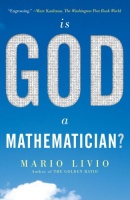Once upon a time in America, whenever an administration spokesman spouted economic nonsense, you could rely on Paul Krugman for a sneer, a blast of outrage, and frequently an imputation of the basest motives. That time ended on approximately January 20, 2009. Today Krugman sleeps at the wheel while administration press spokesman Robert Gibbs spews forth the following:
I think it’s safe to say that for quite some time, when it came to building the solar panels and the wind towers and the wind turbines and a lot of the manufactured equipment for clean energy, we had a number of foreign countries that were doing much better in addressing that demand than we were. And as the President has said often, the type of demand for these components in manufacturing is only going to increase as we seek solutions to our energy problems.
And we have to ask ourselves as a country, are we going to create those jobs and create those components, or are we going to import those components from overseas? The President believes that we have an opportunity to lead the world in this type of manufacturing.
Nobody in the Bush administration ever displayed more economic ignorance, but Krugman was all over those guys every time they came close. Now he lets it slide. So let me do his job for him:
When the domestic demand for a product increases, the law of comparative advantage tells you to import more of it, not less. If it is in fact true that “the type of demand for these components is only going to increase” then American manufacturers might want to start producing them, but American consumers will certainly want to import more of them, and any attempt to circumvent that is a good way to make Americans poorer.
(For those following along in their economics textbooks: The world supply and demand for, say, wind turbines, must be more elastic than the domestic supply and demand, so a demand shift has a smaller effect on the world price than the autarkic domestic price and so must increase the foreign comparative advantage—or decrease the domestic comparative advantage, if any.)
For goodness’s sake—if Barack Obama or Robert Gibbs discovers that he really likes bananas on his Cheerios, is his first thought that he’d better start growing bananas, or is his first thought that he’d better figure out where to buy them? That’s the kind of question Paul Krugman used to ask. I miss him.















